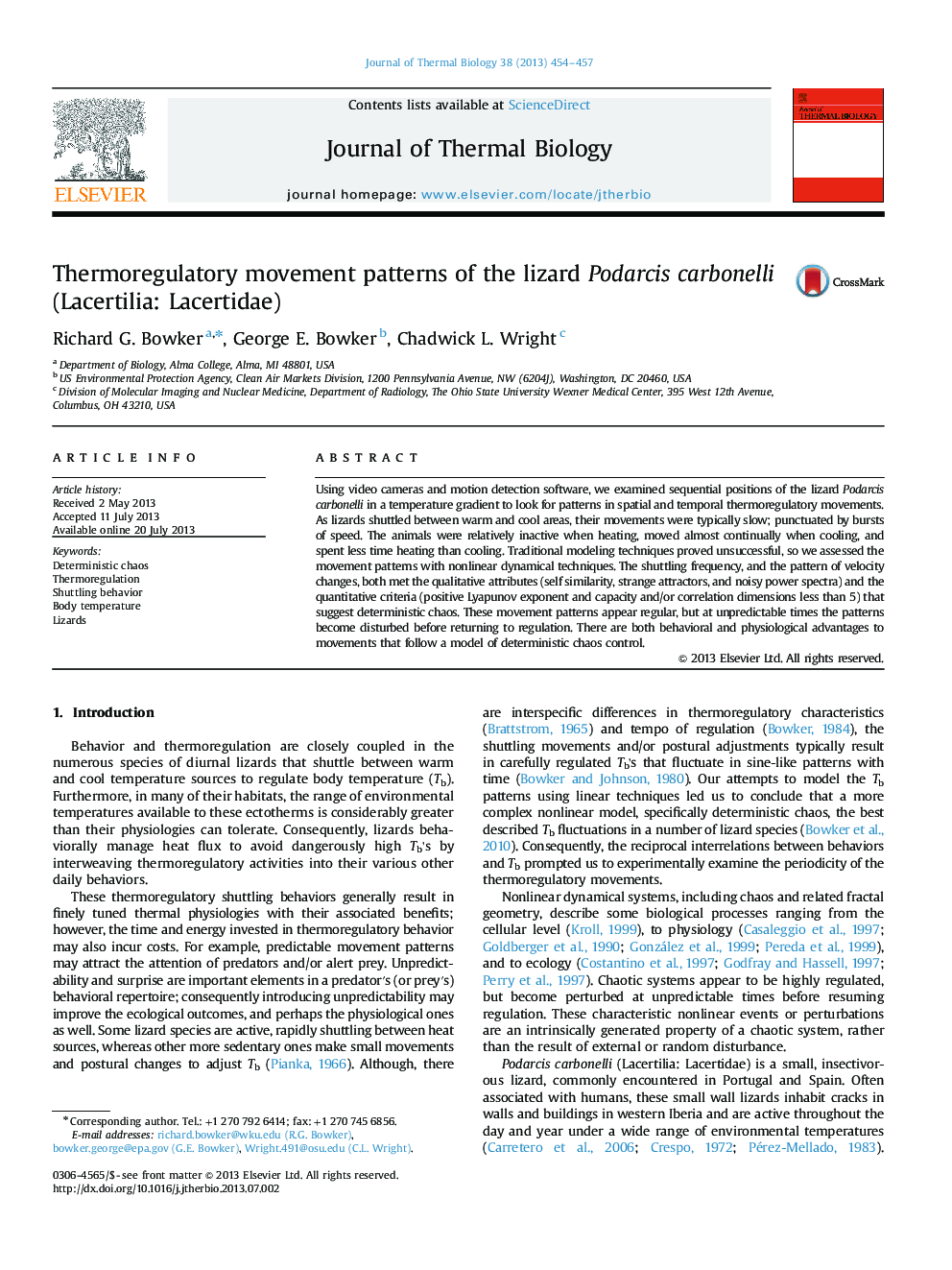| کد مقاله | کد نشریه | سال انتشار | مقاله انگلیسی | نسخه تمام متن |
|---|---|---|---|---|
| 2843139 | 1166074 | 2013 | 4 صفحه PDF | دانلود رایگان |

• The lizards′ thermoregulatory movements are highly regulated.
• The movement patterns are punctuated with unpredictable digressions.
• This is consistent with a nonlinear dynamical model suggesting a deterministic chaos.
• Chaotic control results in regulated temperatures and behavioral unpredictability.
• Chaotic control may be advantageous for animals that are both predators and prey.
Using video cameras and motion detection software, we examined sequential positions of the lizard Podarcis carbonelli in a temperature gradient to look for patterns in spatial and temporal thermoregulatory movements. As lizards shuttled between warm and cool areas, their movements were typically slow; punctuated by bursts of speed. The animals were relatively inactive when heating, moved almost continually when cooling, and spent less time heating than cooling. Traditional modeling techniques proved unsuccessful, so we assessed the movement patterns with nonlinear dynamical techniques. The shuttling frequency, and the pattern of velocity changes, both met the qualitative attributes (self similarity, strange attractors, and noisy power spectra) and the quantitative criteria (positive Lyapunov exponent and capacity and/or correlation dimensions less than 5) that suggest deterministic chaos. These movement patterns appear regular, but at unpredictable times the patterns become disturbed before returning to regulation. There are both behavioral and physiological advantages to movements that follow a model of deterministic chaos control.
Journal: Journal of Thermal Biology - Volume 38, Issue 7, October 2013, Pages 454–457